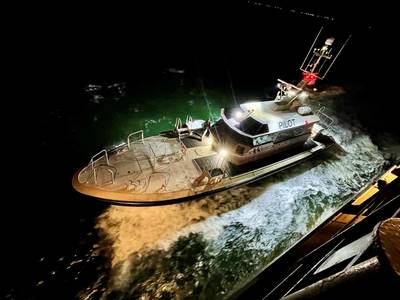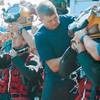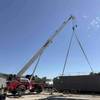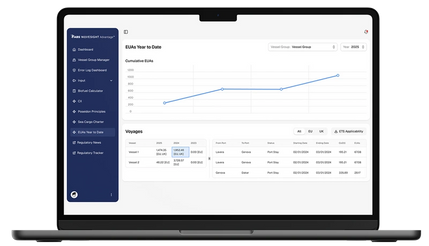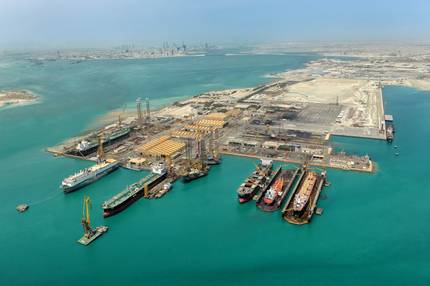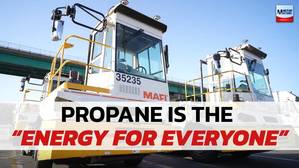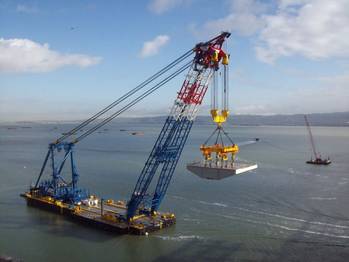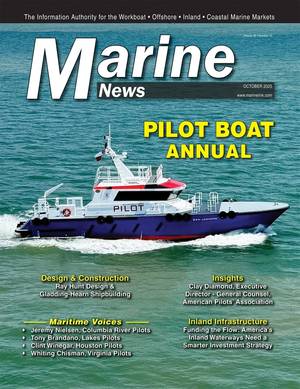Maritime Voices: Clint Winegar, Presiding Officer, Houston Pilots
The Houston Ship Channel is one of the nation’s busiest and most vibrant shipping lanes, a key corridor for energy and chemicals. Keeping operations running smoothly involves the Houston Pilots, facilitating more than 20,000 vessel assists each year. Clint Winegar, Presiding Officer, Houston Pilots, discusses the organization in the round, explaining how the Houston operation remains one of three in the country that still utilizes station boat. With Maritime Reporter TV he breaks down the idiosyncrasies of the operations, including insights on the boats, the tech and the people that keep one of the world’s busier waterways humming along safely and efficiently.
When it comes to sheer volume, few waterways on earth compare to the Houston Ship Channel. At its helm, ensuring safe passage for thousands of vessels each year, are the Houston Pilots, a group led by Presiding Officer Clint Winegar. In a conversation that touches on personal history, fleet innovation, operational challenges, and global megatrends, Winegar illustrates the complexity and importance of pilotage in one of the world’s busiest ports.
Family Tradition
Winegar’s path to maritime was shaped by a family influence, and one very memorable boat ride. Growing up in LaPorte, Texas, he admired his grandfather, who was a harbor pilot. “When I was 11 or 12 years old, [my grandfather and I] were supposed to go to the barbershop, but someone called in sick, and he had to go to work,” Winegar said. “[My mother and grandmother were out shopping] and he didn’t want to leave me home alone, so he said, ‘Come with me.’ That ship ride sealed the deal for me to have a career in maritime.”
His grandfather had left school at 14 to work on harbor tugs, becoming the family’s first mariner. Winegar followed with his own first: attending college at Texas A&M Galveston before spending a decade at sea on product and chemical tankers. “I was blessed to get into the local group here in Houston, where I was born and raised. It was pretty special to be in the same place my grandfather had been.”
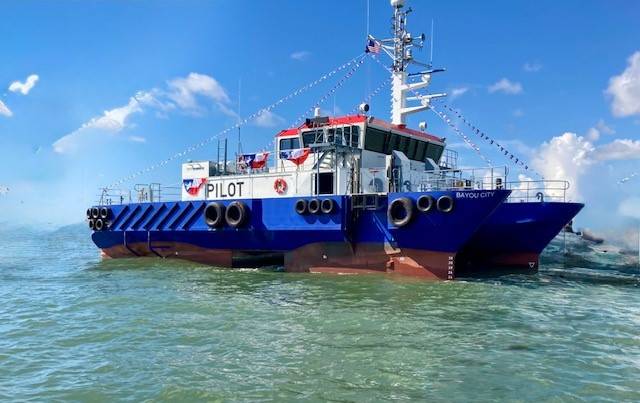 Images courtesy Houston Pilots
Images courtesy Houston Pilots
Moving the Nation’s Economy
The scope of Houston Pilots’ work is staggering. “We move roughly 20,000 ships a year, more than Los Angeles and New York combined,” Winegar said. “And beyond that, there are about 200,000 tow movements annually on the channel. It’s a constant flow of traffic. We have a pilot boarding or disembarking a ship every 20 minutes, roughly 60 ships a day.”
With numbers like these, Winegar is quick to emphasize that Houston Pilots’ primary challenge isn’t currents or tides, it’s traffic management on a colossal scale.
Supporting that nonstop traffic is a unique fleet that sets Houston apart. The association is one of only three pilot groups in the U.S. operating “station boats” — what the Houston Pilots call “bar boats.” These SWATH (Small Waterplane Area Twin Hull) designs changed the way pilots work.
“About 25 years ago, one of our pilots pushed for us to try a swath design,” Winegar said. “It was so stable that guys could get real rest between jobs. It changed the course of our work.”
The design’s impact spread internationally. German and Dutch pilots, impressed during a visit, adopted it for their own waterways. In 2017, Houston Pilots traveled to Germany to build two new SWATH bar boats, which remain in service today, alternating week-on, week-off.
Complementing the bar boats are shuttle boats that ferry pilots to and from vessels. Two new 80-foot shuttle boats, built by Breauxs Bay Craft, incorporate Sea Keeper gyro stabilization technology. “It really levels out the boat, taking the roll out, especially when coming alongside a ship,” Winegar said. “We stole the idea from Galveston Pilots, and it’s been incredible.”
The Houston Ship Channel is the economic engine of Texas and beyond, responsible for 20% of the state’s GDP and more than a trillion dollars in national economic impact, Winegar estimates. That scale comes with challenges.
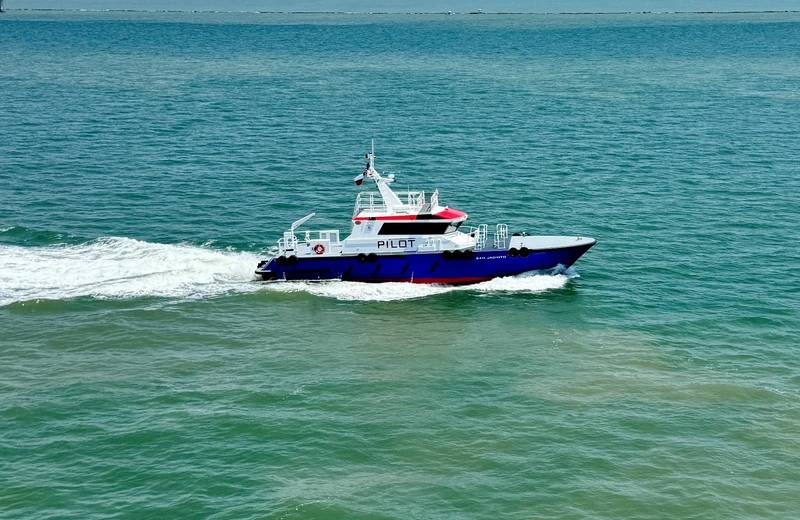 Images courtesy Houston Pilots
Images courtesy Houston Pilots
The “F Word”
Every harbor pilot locale has its own unique challenges, and in the case of Houston, that starts with ‘the other F-word.’
“The biggest environmental hurdle is fog,” Winegar said. “When we get fog, you can’t see your hand in front of your face, and it shuts everything down. A single day’s closure has a massive economic impact.”
Hurricane season poses another test. “Storms sometimes form overnight in the Gulf,” he said. To maintain resilience, Houston Pilots contract with a helicopter operator during hurricane season. “If it’s too rough offshore for a pilot boat, we can still get ships out and safely return the pilot by helicopter. It keeps commerce moving without unnecessary risk.”
Beyond weather and traffic, global regulatory shifts are effectively causing challenges for locale pilots, too, as Winegar cited IMO-driven emissions measures as a prime example. “Our concern is unintended consequences,” he said. For example, when ultra-low sulfur diesel was introduced, older ships experienced leaks and fires. Now, carbon-reduction efforts are pushing technical solutions such as power limiters on engines. “Some ships already feel underpowered for our channel,” Winegar said. “Add a power limiter, and it reduces their ability to maneuver safely in tight traffic. We’ve worked with the Coast Guard and trade groups like Intertanko to address these concerns, but it’s a real issue.”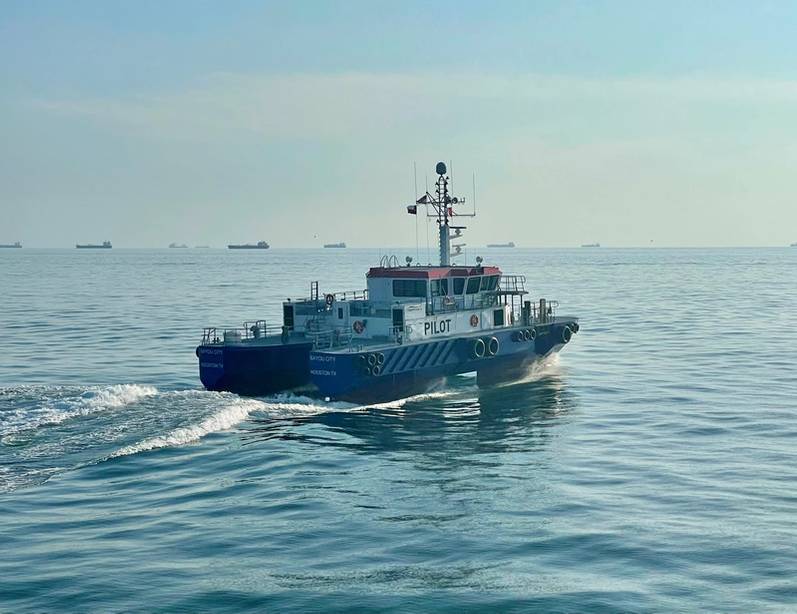 Images courtesy Houston Pilots
Images courtesy Houston Pilots
Raising the Profile of Pilots
Historically, pilot groups – and in fact a broad swath of the maritime industry – prefers to remain under the radar, their success measured by uneventful transits. But Winegar believes visibility matters. “We don’t want people to find out what we do only after a disaster,” he said. “During COVID, people couldn’t get their Amazon packages, and they suddenly realized how important supply chains are. We’re using that awareness to show how vital pilots are to safe, efficient commerce.”
For Winegar, the message is simple: pilotage is indispensable. “We’re integral to the economy, and we’re working every day to ensure safe navigation in one of the busiest waterways in the world. The ships may change, the regulations may change, but our commitment remains the same.”
Watch the full interview with Clint Winegar, Presiding Officer, Houston Pilots, on Maritime Reporter TV:




